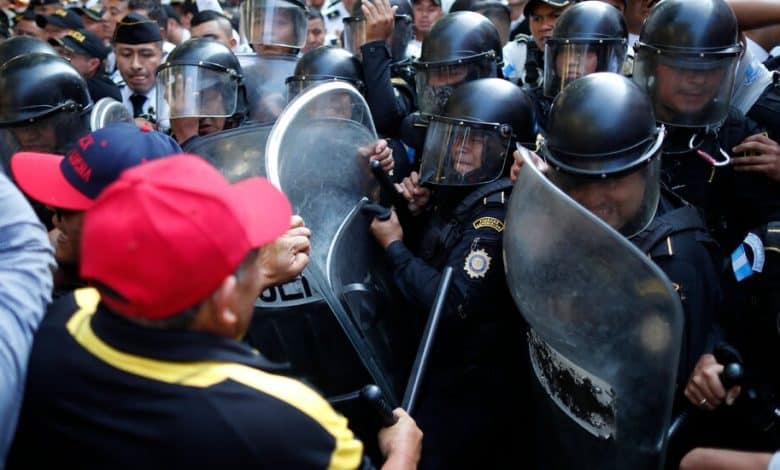Tempers Flare as Guatemala’s Presidential Inauguration Is Delayed

Opponents of the anticorruption crusader Bernardo Arévalo delayed his inauguration as president of Guatemala on Sunday, ratcheting political tensions higher in Central America’s most populous country.
Confusion around the transition of power emerged shortly after Guatemala’s highest court on Sunday allowed conservative members of Congress opposed to Mr. Arévalo to maintain their leadership of the chamber.
After that ruling, arguments among lawmakers flared in the chamber around midday when Congress was expected to officially name Mr. Arévalo as president. Some congressional members went behind closed doors; as they remained deliberating, other lawmakers contended they were trying to derail the transfer of power, fueling bewilderment and frustration around the country.
“These are the latest strategies that corrupt elites are using to prevent a democratically elected government from coming to power,” said José Ochoa, 64, a small-business owner who was among the hundreds who streamed into the streets of Guatemala City’s old center to show support for Mr. Arévalo on Sunday.
Dozens of his supporters tried to push their way past police barricades to reach Congress on Sunday afternoon. As tempers flared on the streets of the capital, it remained unclear whether leaders in Congress would take part in a ceremony to transfer power to Mr. Arévalo — or whether the ceremony would happen at all.
Mr. Arévalo won Guatemala’s presidential election by a wide margin in August and has faced a barrage of legal attacks from prosecutors, judges and political leaders aimed at preventing him from taking office. On Sunday, he said that he and his running mate, Karin Herrera, would become president and vice president of Guatemala at 4 p.m. local time, according to Guatemalan law.
It remained unclear how the situation would play out. Celebrations had been planned in Guatemala City, but the mood on the streets turned sour as the delay dragged on.
“This is an abuse of power,” said José Inés Castillo, a member of Congress who accused others in the chamber of “plotting a coup.” As Mr. Castillo spoke to reporters there, cries of “golpistas,” or “coup plotters,” echoed in the background.
The confusion around the inauguration played out as dignitaries from around the world arrived in Guatemala for the ceremony, including a U.S. delegation led by Samantha Power, administrator of the United States Agency for International Development, and two Democratic members of Congress from California, Norma J. Torres and Lou Correa.
Several heads of state from Latin America, including Presidents Gabriel Boric of Chile and Gustavo Petro of Colombia, also came for the inauguration, as did King Felipe VI of Spain.
The transition of power in Guatemala has been anything but orderly, marked by arrests, rumors of arrests and fears that the officials opposing Mr. Arévalo would go even further to prevent his inauguration. Mr. Arévalo’s opponent in the presidential race, a former first lady, refused to recognize his victory.
Speculation swirled in recent days that prosecutors would seek the arrest of Mr. Arévalo’s running mate, Ms. Herrera, potentially derailing the inauguration because both the president-elect and vice president-elect need to be present for the transfer of power to be legitimate.
Guatemala’s highest court issued an order last week shielding Ms. Herrera from arrest, giving her and Mr. Arévalo a reprieve.
Protests exploded around Guatemala in October in support of Mr. Arévalo, developing into a general strike that paralyzed much of the country’s economy. As protesters gathered again this weekend in the capital, some said they were prepared to take to the streets once more if Mr. Arévalo was not allowed to take office.
“This is a coup d’état,” said Victoria Tubin, an Indigenous leader and professor of social work at the University of San Carlos. “The resistance will continue.”